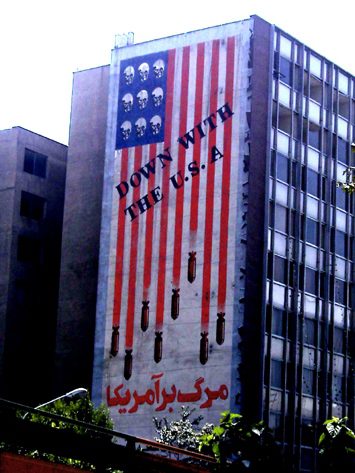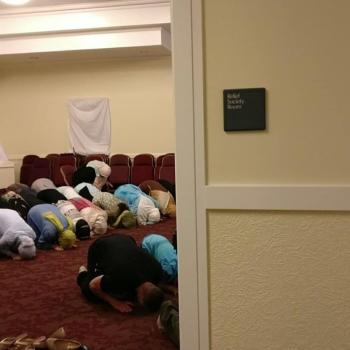
Every day, a bit more:
Needless to say, Marxism could not deliver on its promises, nor give dissatisfied and humiliated residents of the Near East the dignity that they craved. But what other answer was available? Well, the Islamic answer was there. It had always been there, but now its rivals were discredited. “Why,” devout Muslim thinkers asked, “should the Muslims turn to the West for clues on how to be successful?” They hadn’t needed Western assistance in the early days, when they conquered the Mediterranean world. They hadn’t needed the West when they invented algebra. This search for a solution in the West was misguided and unnecessary, modern Islamists argued. And, these thinkers pointed out, Marxism was every bit as Western as was liberal democracy and market capitalism.
Why turn to the West when the Near East had everything that was necessary? Islamic law was every bit as sophisticated as anything that the West had to offer. Islamic doctrine presented an entire comprehensive view, not only of how one ought to live as an individual but also of how society ought to be constituted. And so we have seen an outpouring in recent years of works on Islamic economics, the Islamic view of international relations, critiques of mechanistic Western science, and fierce denunciations of Western materialism. Islam, in the hands of many thinkers, has gone on the offensive. One Iranian author, the late Jalal Al-i Ahmad, wrote a best-selling book entitled, in Persian, Gharbzadagi, literally “West-Sickness,” which has appeared in English translation under the clever title of Occidentosis..[1] Westernness, in the view of such Muslim thinkers, is a disease. It is something to be thrown off, as one would throw off a fever or, perhaps more to the point, an infection.
In recent years, there has been a widespread sense among Muslims that Islam might indeed be on the rebound. The Islamic Republic of Iran, for instance, seems to many of the faithful, not only to Iranians, to have stood up to the West. This appears to many a breath of fresh air. Whatever the moral qualifications of the Iranian regime—and even many of its admirers will admit to serious doubts about those—there is something in this that many in the Arab world and elsewhere in the Near East have found undeniably attractive. It is much the same thing that created so much support for Saddam Hussein during the recent crisis in the Persian Gulf. He was standing up to the West—an Arab, looking the presidents of France and the United States and the British prime minister right in the eye as an equal! (To paraphrase a famous remark made about another head of state, and to do so in a manner that will be acceptable to Latter-day Saint readers, the Arabs might have said something like this about Saddam Hussein: “He may be a @#$&#, but he’s our @#$&#.” And, in fact, many of them did say essentially this to me during the crisis and the war.) Given the managed press that is the only source of news for many of these people, it is not surprising, therefore, that they were proud of how long the war lasted, attributing it to Saddam’s courage rather than to Western restraint.
[1] Jalal Al-i Ahmad, Occidentosis: A Plague from the West, translated by R. Campbell (Berkeley: Mizan Press, 1984).
















